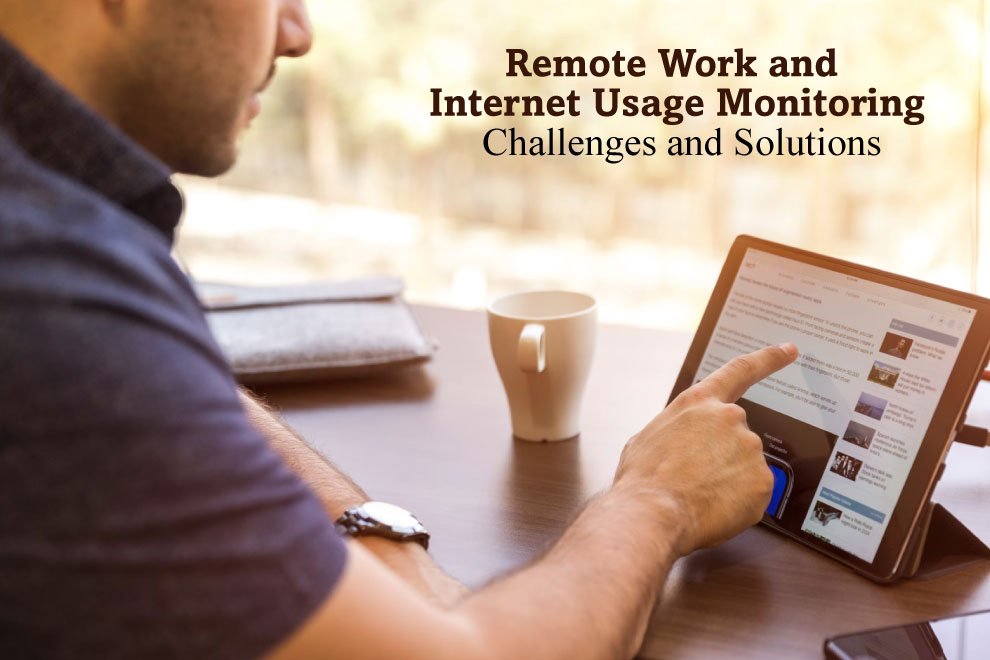As more people work remotely worldwide like never before, around 22 million in the U.S. alone, the old rules about where work happens are fading away. This creates a new online world where getting work done and being responsible for it are super important. In this big change, bosses struggle to keep an eye on things while still letting remote teams do their thing privately.
One idea that’s getting popular is the use of employee monitoring software. In this piece, we look into the ins and outs of remote work and talk about the problems and fixes for monitoring employee internet usage.
Understanding the Need for Internet Usage Monitoring
In the digital landscape of remote work, conventional oversight methods fall short, causing worries about productivity, data security, and appropriate internet use among employers. This change encourages companies to adopt new ways to observe and control what their employees do online.
Introducing software for monitoring employee internet usage—a system that sheds light on online habits, giving employers a look into their remote team’s digital interactions. As remote work increases, it’s crucial to find the right mix between flexibility and responsibility, prompting businesses to take active steps in overseeing how their employees use the internet.
Balancing Trust and Privacy
As remote work becomes more common, managing trust and privacy grows in importance. Employers aim to keep productivity high and maintain accountability, while employees prioritize their independence and privacy. Open and clear communication is crucial to maintain trust when monitoring online activities.
Employers can reduce worries and build trust by explaining why and how they monitor online activities. Introducing strong privacy measures with these monitoring policies can help reassure employees that their rights are respected, creating an atmosphere of mutual respect and understanding.
Addressing Legal and Ethical Considerations
When it comes to remote work and keeping an eye on internet use, organizations need to be mindful of both legal rules and ethical standards. Following regulations like GDPR is a must, ensuring that companies maintain high levels of data protection.
Ethically, employers need to find a middle ground between monitoring productivity and respecting employee privacy. By sticking to legal guidelines and ethical values, organizations can manage internet monitoring responsibly and transparently.
Fostering Professional Development
When used thoughtfully, monitoring employees can push professional development forward in remote teams. Monitoring software gives managers a peek into individual performance and online actions, helping them spot strengths, areas that can be improved, and chances to improve skills.
With helpful feedback and tailored support, employees can use these insights to tweak their work habits, boost productivity, and reach their career goals. Also, monitoring can set the stage for mentorship opportunities, letting managers pair standout employees with mentees to share knowledge and build skills. Overall, employee monitoring becomes a tool to nurture a culture of ongoing learning and top-notch professionalism in remote setups.
Implementing Effective Monitoring Strategies
Creating effective monitoring strategies involves tailoring approaches to match organizational goals and employee needs. Employers should craft monitoring protocols suited to different job roles and industry demands, finding the sweet spot between supervision and independence.
Additionally, gathering input from employees about their comfort with monitoring can refine strategies and promote teamwork in remote work setups. Utilizing advanced features in monitoring tools—like live tracking, customizable alerts, and detailed reports—boosts visibility and facilitates proactive management of online tasks. This empowers employers to tackle issues promptly and maximize productivity.
Promoting Responsible Internet Usage
Instead of just watching over, monitoring internet usage aims to build a culture where remote teams take responsibility for their actions. Teaching employees about internet usage rules and cybersecurity helps them make smart choices online, protecting both company information and personal privacy.
When employees feel responsible and regulate themselves, organizations can lower the chances of online mishaps and encourage everyone to act responsibly online. This sets the stage for a safe and efficient remote work setup in the company.

Final Thoughts
As remote work reshapes how we work, it’s clear that keeping an eye on internet use is crucial. Finding the right balance between trust and accountability is key for employers. This helps them make the most of remote work while ensuring productivity and keeping data safe.
Transparency, legality, ethics, and giving employees control are essential for effective monitoring. These principles help organizations handle the challenges of remote work with honesty and strength. As we move into this new era of remote work, let’s make sure we prioritize trust, respect, and responsible digital behavior.
Also Read: What is Proxy? Learn How Proxy Servers Enhance Your Internet Security










